MercoPress. South Atlantic News Agency
Stories for June 2021
-
Friday, June 18th 2021 - 09:55 UTC
Castillo advisor says there will be “no expropriations, no nationalization, or price controls” in Peru
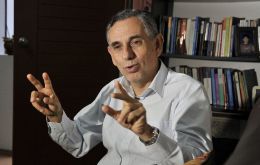
Pedro Francke, a 60-year-old economy professor and advisor to presidential frontrunner Pedro Castillo, has announced “there will be no expropriations, no nationalization, or price controls” in Peru, the Madrid daily El País reported.
-
Friday, June 18th 2021 - 09:52 UTC
Brazilians flock into Portugal for the fourth straight year
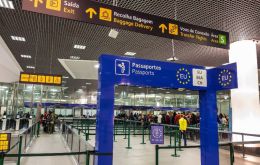
The arrival of Brazilian migrants into Portugal has reached new levels for the fourth consecutive year even despite the coronavirus pandemic restrictions.
-
Friday, June 18th 2021 - 09:49 UTC
WHO focuses on possible dangers of coronavirus lambda variant
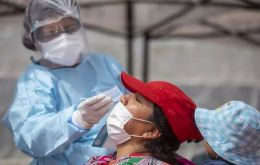
The World Health Organization (WHO) has decided to focus on the possible threats by the coronavirus variant known as Lambda, which was first found in August 2020 in Peru, when it was called C.37 or “Andean.”
-
Friday, June 18th 2021 - 09:46 UTC
Argentina hopes to resume beef exports next week

Argentina's Minister of Productive Development, Matías Kulfas, Thursday said meat exports are to resume next week after details to ensure proper supply to local consumers are fine-tuned.
-
Friday, June 18th 2021 - 09:35 UTC
Interest rates in Brazil need to stay high to contain 2022 inflation, former minister says
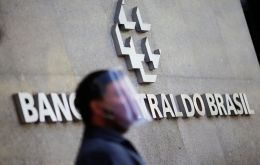
Former Brazilian Finance Minister Maílson da Nóbrega (Jan. 6 1988 - March 18, 1990) under President José Sarney has pointed out that the country needs to keep interest rates at a high level at least until the Selic rate reaches 6.5% per year.
-
Friday, June 18th 2021 - 09:23 UTC
Major European firms sign agreement for sustainable exploitation of Chilean lithium
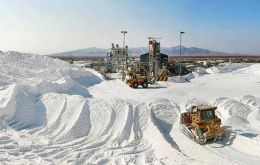
As the world transitions from fossil fuels to sustainable energy-powered vehicles, four European giants have signed an agreement for the sustainable exploitation of Chilean lithium, it was announced Thursday in Santiago.
-
Friday, June 18th 2021 - 06:42 UTC
Scotland calls for UK/Australia trade deal to be ratified by Westminster and Holyrood
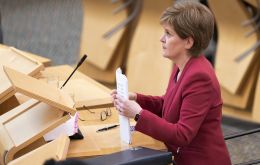
Scotland's First Minister has raised concerns about the impact of the UK/Australia trade deal announced this week on Scottish farmers and called for the agreement to be ratified by Westminster and Holyrood, according to the Edinburgh media.
-
Thursday, June 17th 2021 - 12:34 UTC
Fears of Islamic State influence in East Congo, where thousands of UN Latam peace keeping forces are deployed
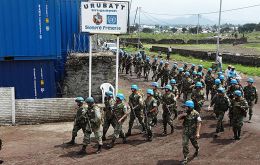
United Nations experts said on Wednesday they had been unable to find evidence of direct support by the Islamic State for an Islamist militia in eastern Congo. Several Latin American countries have deployed under command of UN, peace-keeping forces, among which Brazil, Paraguay, Bolivia, Guatemala and Uruguay, with more than a thousand personnel.
-
Thursday, June 17th 2021 - 09:55 UTC
Ambassadors back to Moscow and Washington is main outcome of Biden-Putin Summit in Geneva
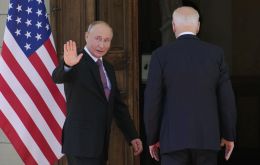
US and Russia's Presidents Vladimir Putin and Joseph Biden have agreed that the two countries’ ambassadors will return to their workplaces in Moscow and in Washington in what became the most significant announcement after Wednesday's summit in Geneva.
-
Thursday, June 17th 2021 - 09:54 UTC
Peru's fortunes start packing up in case Castillo becomes President

Peru's wealthiest people feel threatened by the likelihood of leftwing Pedro Castillo becoming the next president and have therefore started wiring money abroad, it was reported.
